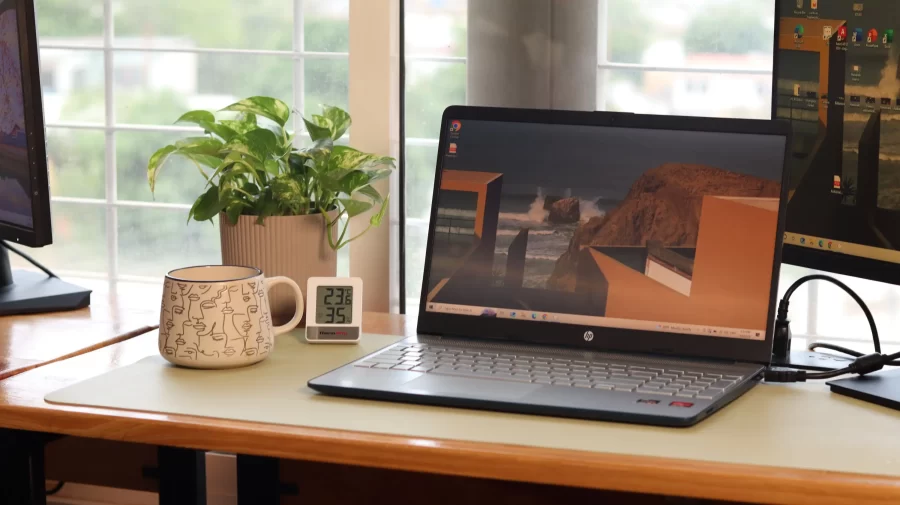Wellness shouldn’t have to be a luxury for that young adult that is just out of college, looking to thrive in his career and make a living out of his talent and passion. It shouldn’t be a luxury for that Millennial who’s a new parent and tries to balance their new way of living with their job, and neither should it be for that long-term employee or even business associate who is in love with his job. Wellness should be the norm and the bare minimum that every company should aspire to.
Yes, wellness is a shared responsibility with every individual too… but as a company, we need to be sure that we are playing our part in the best possible manner. We want our people to be happy and healthy, genuinely care about their well-being, and want to make a positive impact on their lives. If those affirmations are true to your company, then you are already halfway there, and you have everything on your side to get there.
You need to remember that employees today are looking for a new kind of job, they are looking for a new style of workplace, they are looking for a new way to improve their well-being, maintain their lifestyle and integrate that with their jobs. People want to work at a place that is willing to adapt and create spaces for wellness. And much more the new generations that are entering the workforce. As the older generation (who was raised to understand and appreciate the hustle) retires, the younger generation (that saw that on their parents) is trying to avoid that burn-out by prioritizing other things. Such as having a better balance between work and life and putting their health first, physical and mental for equals.
So, at the end of the day, investing the time and energy in creating a culture of wellness in your company is a win-win strategy. You can attract the top talent of your company’s area of expertise that wants to commit to a company that cares, and you can make sure that those talented people stay healthy and develop a sense of belonging and loyalty to your company that is looking after them.
But, what can you do as a company, to foster this wellness culture… There are some dimensions to cover, so let’s break it down. If we try to understand the whole picture, we might get caught up in the complexity that involves the construction of wellness. To make it digestible it can be synthesized as Pfizer’s definition says “the act of practicing healthy habits on a daily basis to attain better physical and mental health outcomes, so that instead of just surviving, you’re thriving.”

For physical wellness
When thinking about having good physical health, there are a few things that could come to mind, but some of those that your company could attend more to create that very much-needed wellness culture are:
Nutrition
We can start by thinking about one of the activities we do at work at least once on a regular day. Eating at work is an almost unavoidable task, and also, one that can easily improve your general health or be detrimental to it. Some people like to do meal preps on the weekends and cook all their healthy meals to bring to work during the week. Some others don’t have the time, discipline, or motivation to cook a whole week of meals on two days and prefer ordering in, or going out to eat on the days they can’t cook.
And we all know how important our nutrition is for our health and overall well-being, but are your teams truly aware of those facts? When we are young, and with a superman complex, one might think that having an oreo and some coffee for lunch is okay and won’t have a huge impact on our health, but, how often does that happen? How do you feel after a long day? Do you get tired often?

As a company, your role is to provide options and awareness. You should encourage your employees to make healthy choices. And why not raise awareness of the importance of good nutrition? You can start by filling the office kitchen with healthier options, it’s not like you are going to eliminate the coffee machine or the sodas in the fridge. But hey, you can bring some different flavored tea bags or any other healthier beverage. Are they hydrating? Are you offering them a good water supply? you can try to have a graphic reminder on your board, or just let them know that it is there.
When it comes to snacks, what are the options your employees have at the office or nearby? What about putting some granola bars in the kitchen, maybe a fruit bowl can be attractive for them. By decreasing the number of sweets and greasy options and increasing the number of healthy ones, you’ll be sending the message that it is preferable that they make the healthy choice. But what matters most is that they get to have a choice. Encourage them to rest, to give themselves the time to stop to eat… since skipping their lunch break won’t pay off. Providing the spaces and promoting healthy choices is the wellness starter pack for your company.
Exercises
Healthy bodies are not solely achieved by having good nutrition. You can eat as the nutritionist said, but if you don’t do any form of physical activity, you won’t be at your optimal state. This is more common than one might think, people choosing to eat healthy food but maintaining an inactive way of living, which in the end could be like getting brand new strings for a guitar that stays in a dusty corner in your room, the strings (the food you eat) can be great quality, but if you try to play it, the dust (the lack of physical exercise) won’t let it sound to its fullest potential. You have got to clean that guitar and tune it in.
You may be wondering, how does that relate to my company? Is there even something that could be done at the workplace to help? What role does my company play in all of that? and for starters, just think about your employees… How many of them spend the day in front of a screen? Are they working at a desk with little to no movement for long periods? Just give a thought to how you are contributing to that sedentary lifestyle and what you can do to improve their wellness in that area.
It is not only about comfortable chairs, an adequate height on desks. Sure, occupational health and safety are important things to consider, since they are the first line of action when it comes to taking care of your employees. All those lineaments can increase their quality of life since little things like using a mousepad could prevent serious issues like carpal tunnel and so on. But after we have that covered, let’s try to take it a step further…
During a long day of work, incorporating exercise can be a challenge. But once again, it is possible to foster those spaces. You could try to make regular workout sessions with a trainer for the people at your company, so they can sign up and spend a different time with their teammates while changing up their routine and doing something new. At Freelance Latin America we do an online training session once a month, so our freelancers can virtually gather from wherever they are and train with a fitness coach. By doing this, we promote their physical wellness, we send the message that it is something to pay attention to, and we encourage them to keep taking care of it.
Some other things you could do for your teams could be showing them different kinds of exercises they can do at their desks, like stretches, leg lifts, and more. You can put together a little presentation or document with all the info about how they can incorporate active pauses into their work routines, and send them through email or mention it during a meeting. But let them know that it will be very beneficial for them and that it is not that hard if they just do a little every day. You could encourage some healthy competition within teams and award the one that accumulates the bigger number of steps through the week or jogs the most miles, whatever that might be realistic and motivating for your teams.

For mental well-being
Caring about physical health can directly impact mental health, and so is true the other way around. Your energy can be drained pretty fast for an emotional problem. Conflicts and tension at the office can interfere with your work and your personal life too. So what should you look after to preserve your team’s mental wellness? and what can you do to make that happen? If we try to condense it into smaller parts, you could find different ways to reduce stress and anxiety, keep healthy relationships at work, or maintain a good and sustainable work experience.
For starters, what about promoting healthy boundaries? Sure, we need to keep delivering good quality work and be as efficient as possible, but is it really necessary that Nancy stays so many extra hours at the office to recheck the details of next week’s project? Creating efficient teams is also made by respecting their time and boundaries. If you work by goals and they organize their own time, then your part as the company is to ask for things with humanly possible time frames to achieve, and so on. You want them to do their best, so they need to be at their best. So, why don’t you play a role in helping them create a routine that includes time for them and their personal lives? Whether they are an integrator or segmenter, you need to help out by having them respect their time to themselves.
And what about cooperation? You can make miracles by investing in a good HR team that creates workshops to improve team dynamics. Fostering cooperative teams that support and complement each other is a way to ensure good quality results, constant growth for your team, and healthy relationships between them. You can create the space for group dynamics to strengthen it, or create some opportunities for cooperative competition. But always remember that Team means Together Everyone Achieves More, at least that is true to us.

Another vital point is socialization and communication. Maintaining human interaction is key to preserving mental health, and since remote work is becoming the standard practice, socialization has been limited. So create the spaces for it to happen. People who know each other can work together as a real team. At freelance Latin America, we have our freelancer of the month ceremonies and we also have our clubs where freelancers can bond with others that share the same interest, like two people who like to read, or movies, could form a reading club. And they could better the relationship by saying more than a hi on the stairs and spending more time getting to know their friends from work.
Caring about psychological safety and overall trust makes any workspace a healthier one. Imagine your team feels comfortable sharing ideas, asking for feedback, and giving suggestions to improve. And it is not utopic, it could be your company’s reality if you are willing to put in the effort. Achieving that is not a piece of cake, but a solid first step is honesty and transparency.

We want resilient teams, and we are certain that the key to resilience is recharging, so why don’t we make some spaces to improve and promote that our employees rest and take care of themselves? Within the workplace, having places to unplug for a while, take some fresh air and just relax for a second is an important part of recharging and a small thing that can make a big difference.
This can be a lot to take in and do all at once, but creating a culture of wellness at the workplace will make all the effort worth it. It doesn’t have to be complicated to find a place to start, your teams can help you find it if you ask them the right questions to know where improvements can be made, and where action needs to be taken. You just have to listen to the need and get to work towards meeting that need. Valuing health and wellness is valuing life. Being a company that cares about building a wellness culture is ensuring a long, full, and productive life because preserving health is making the work sustainable… and we know that working hard gets nowhere if it is not sustainable, that’s why we prefer working smart. And tell us, what are you waiting to do that too?






